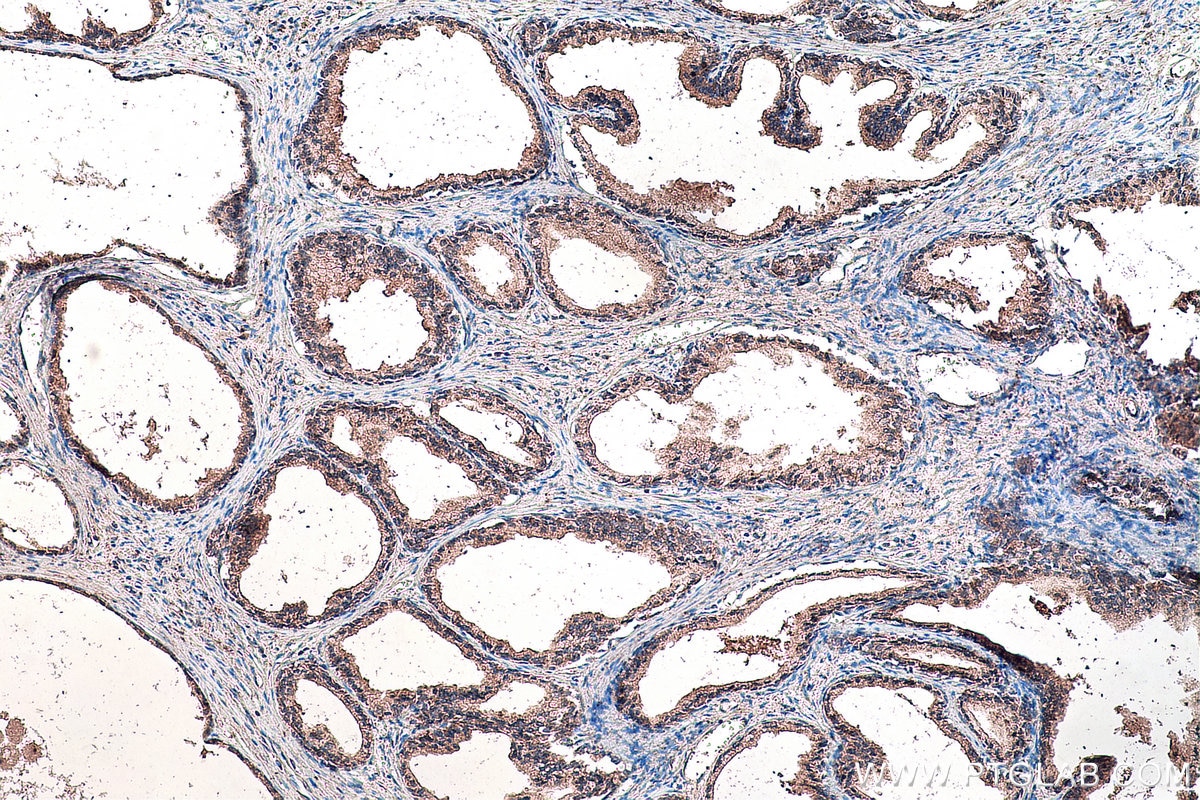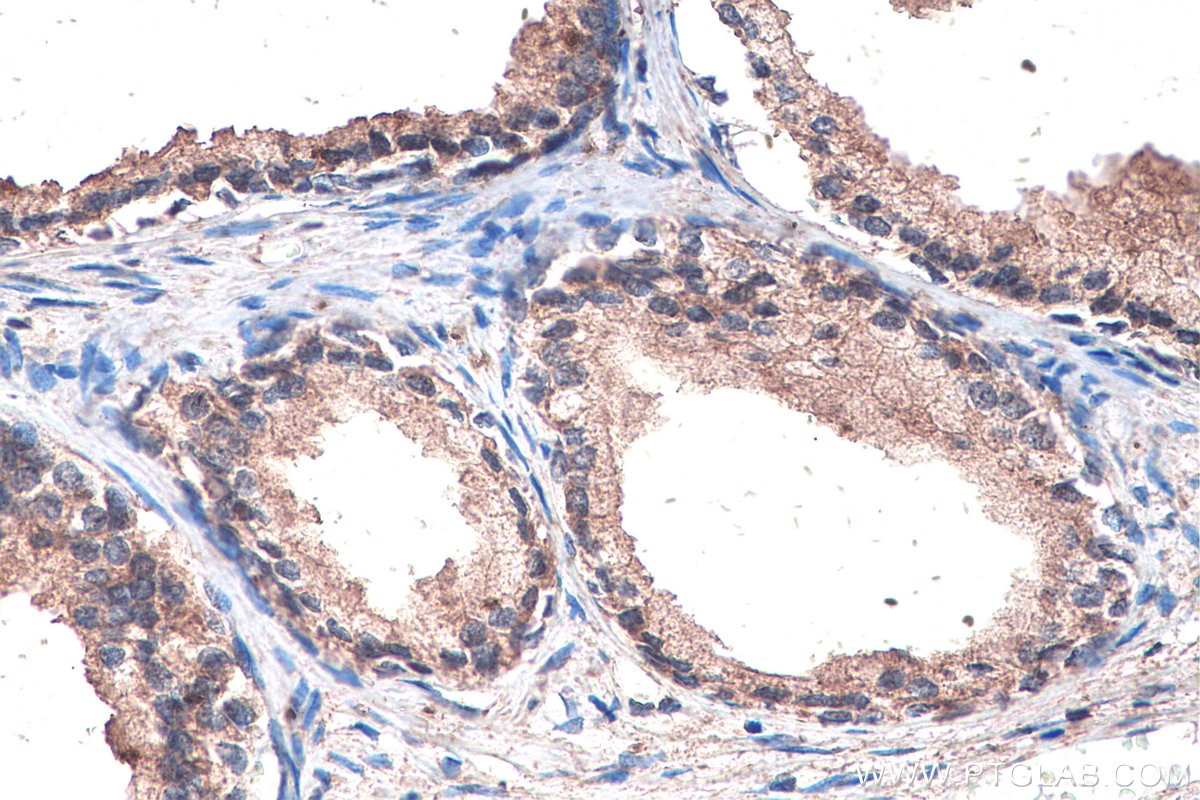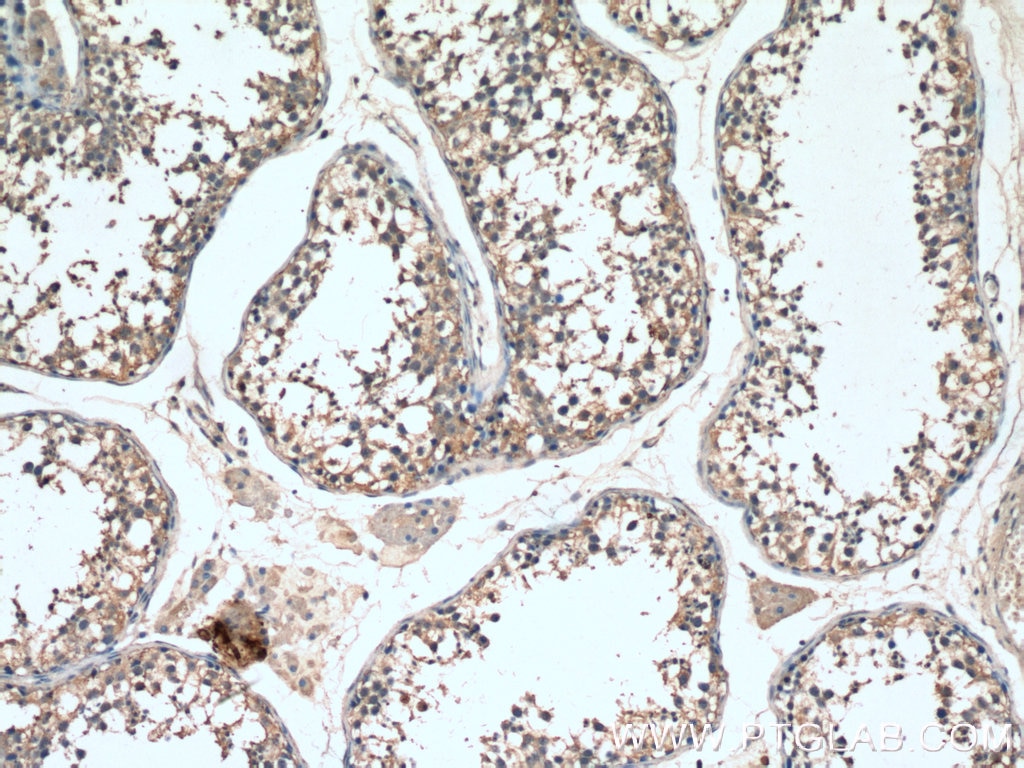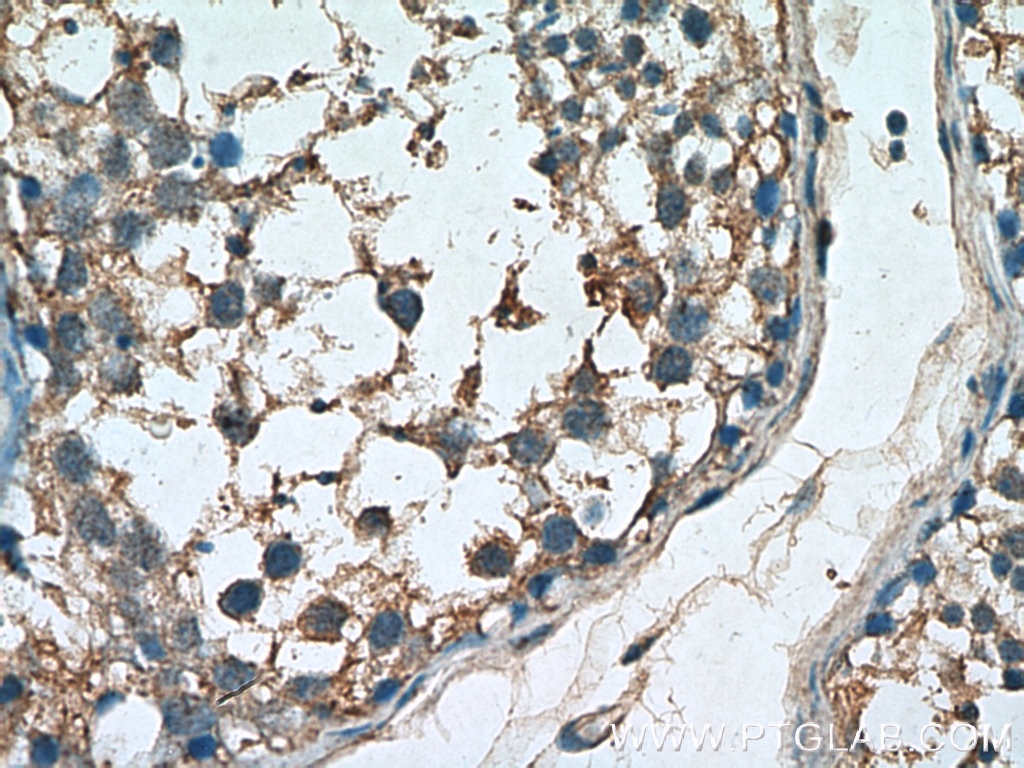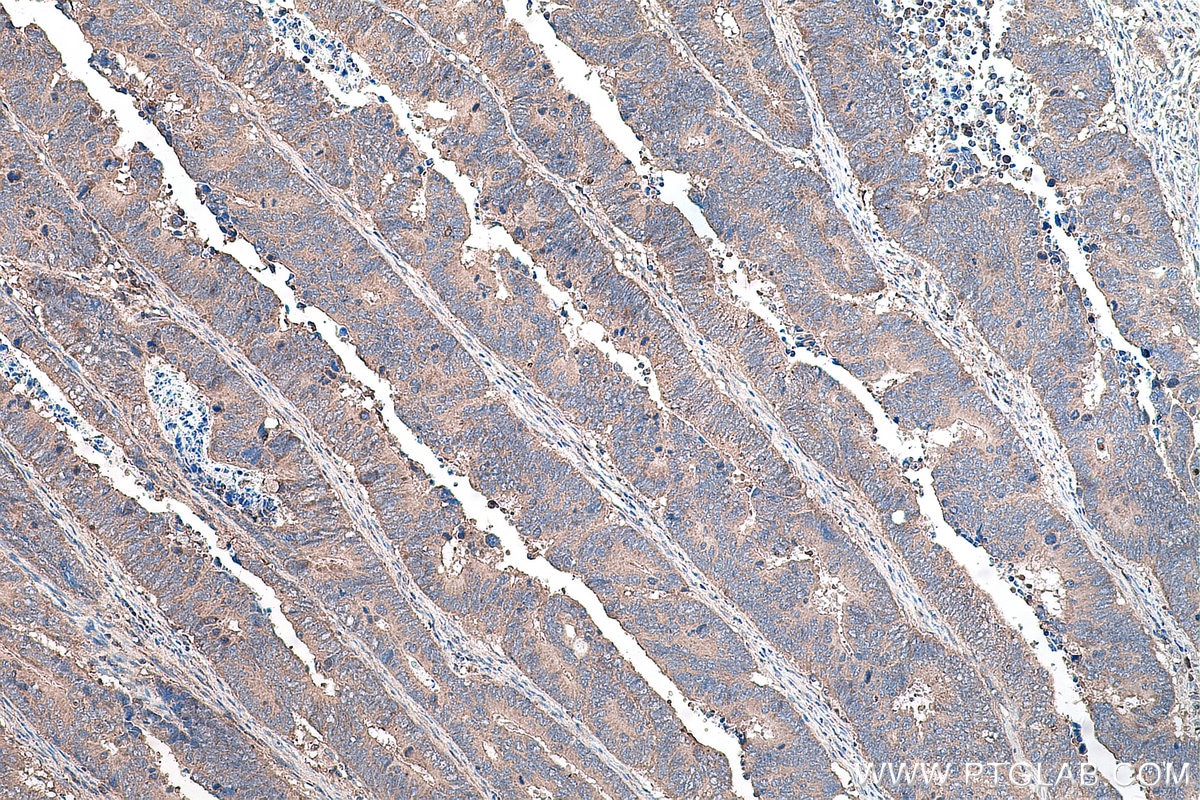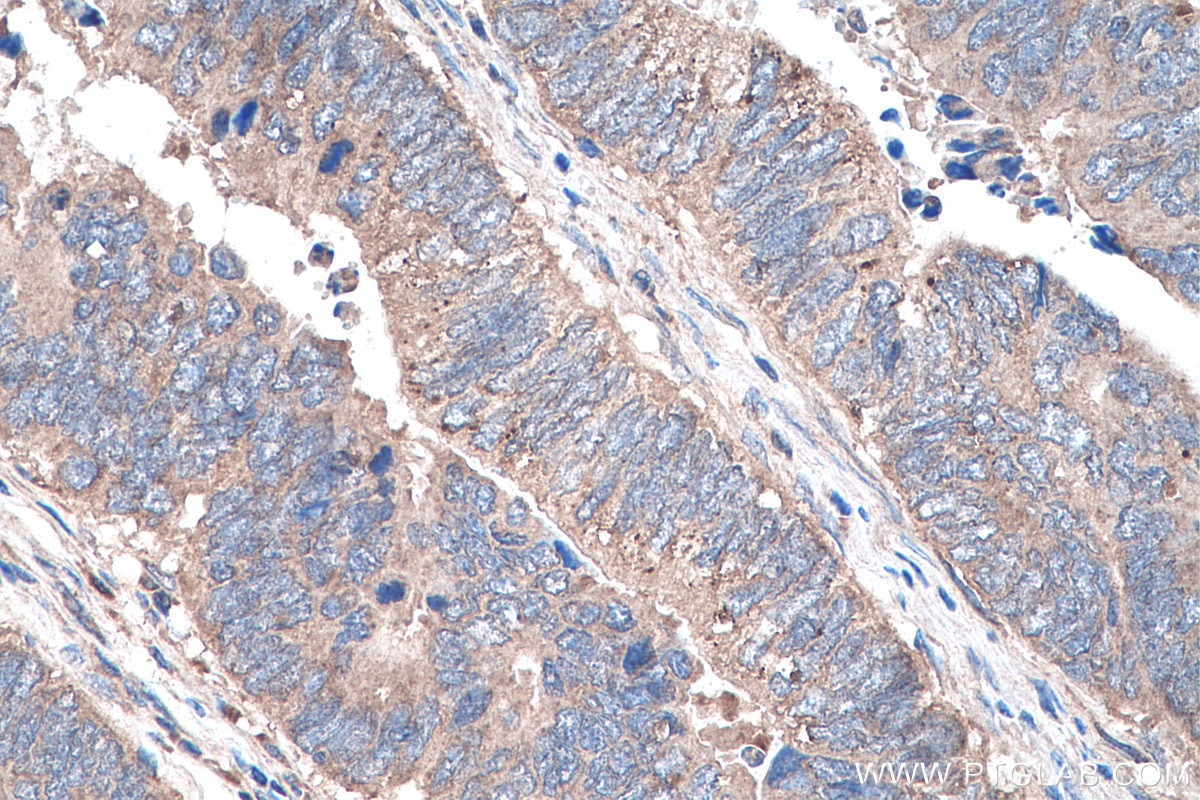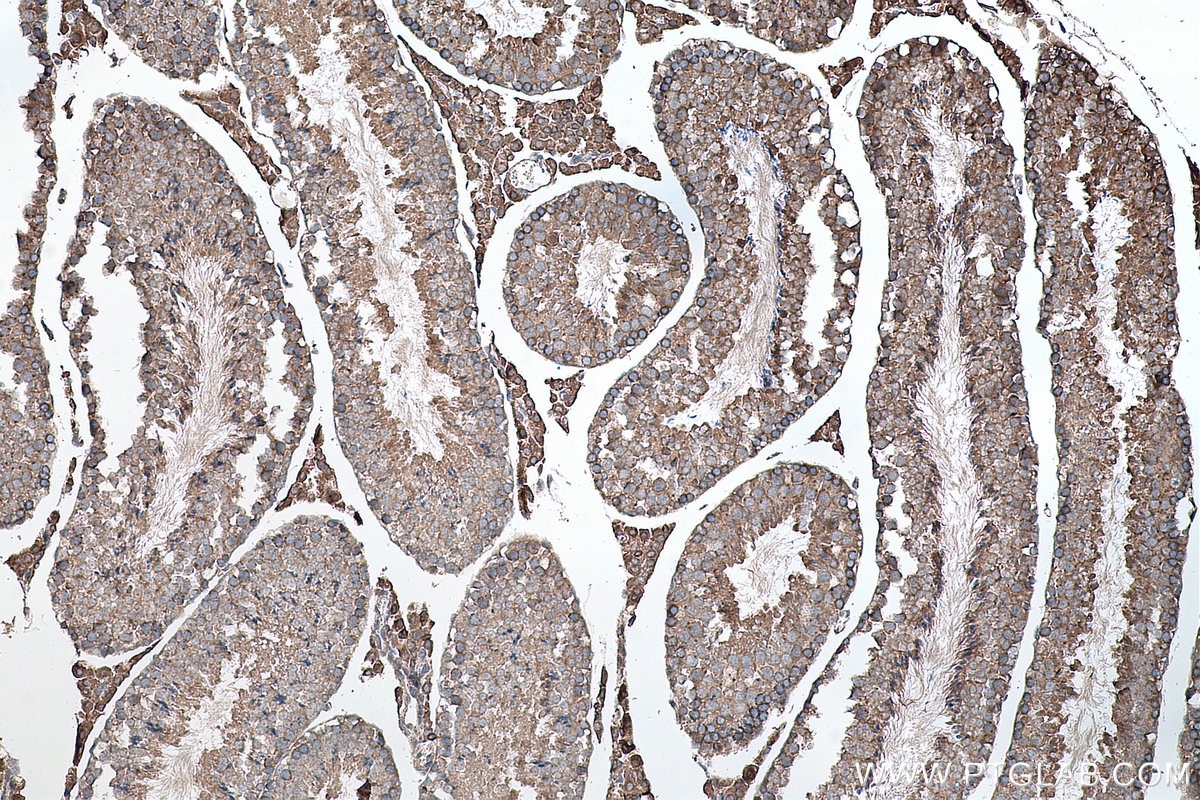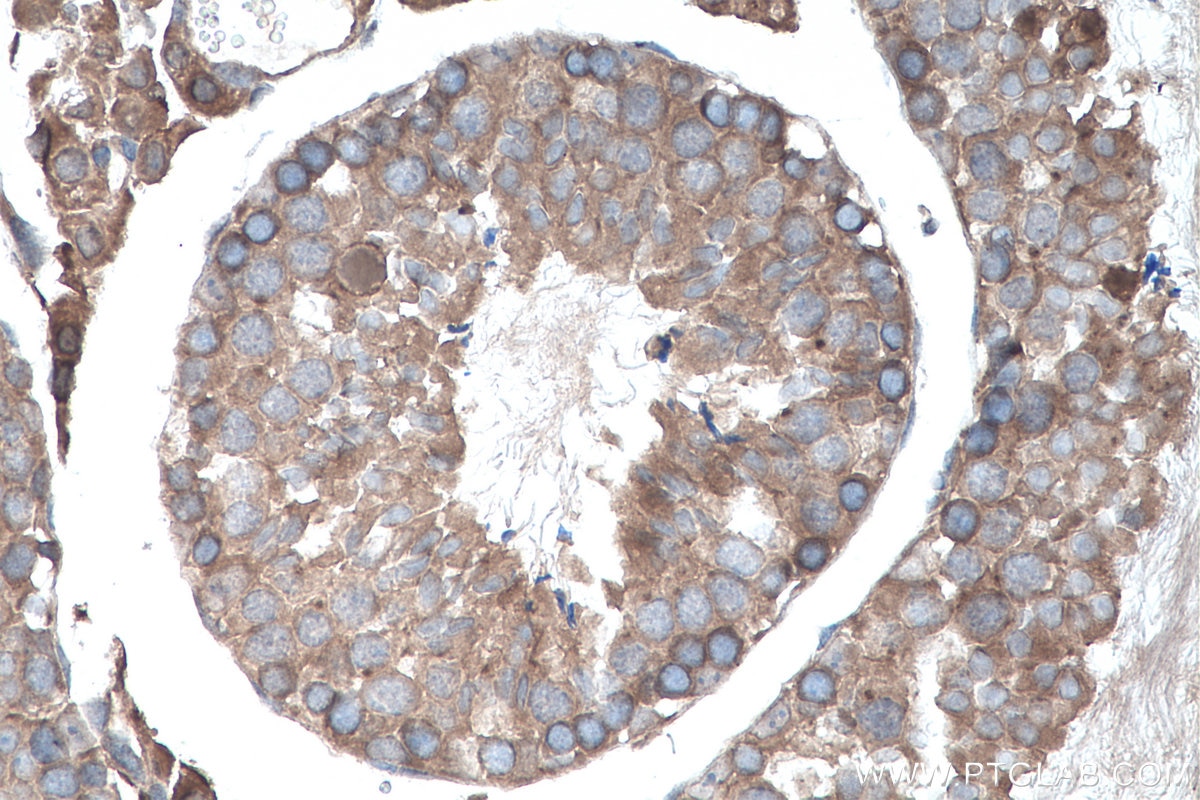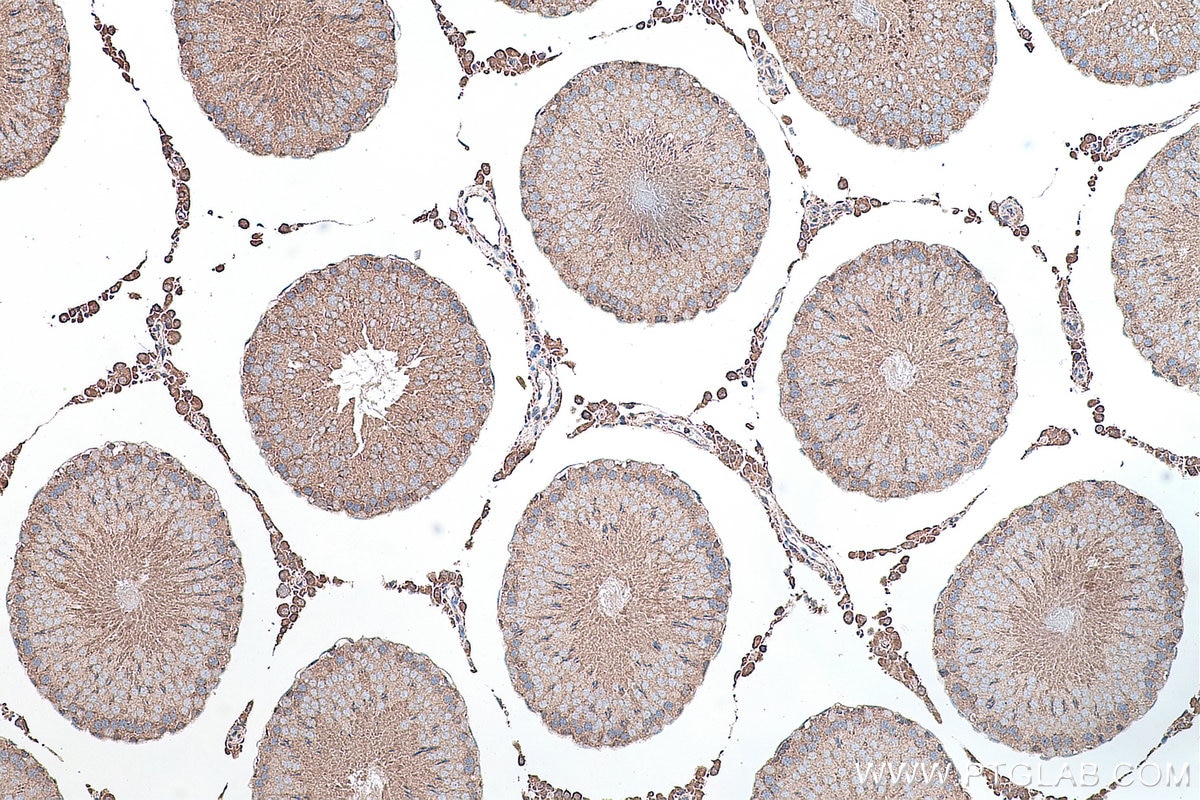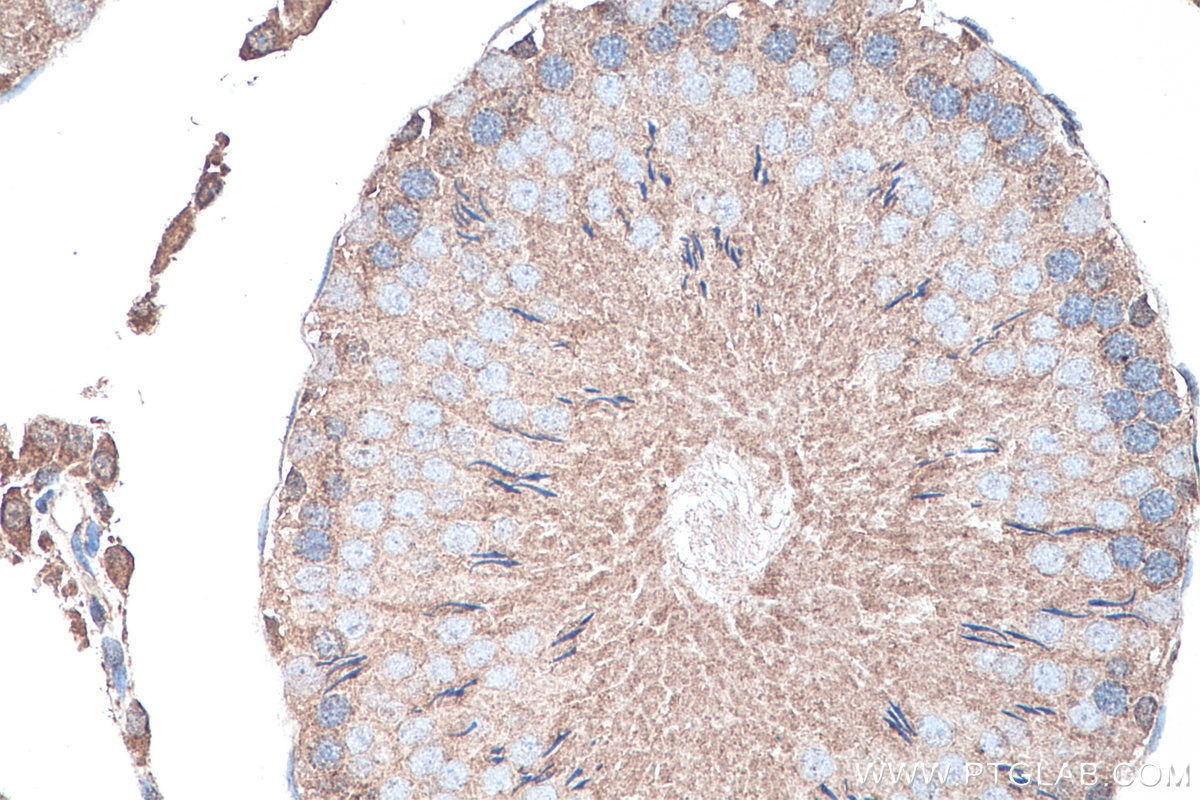Anticorps Polyclonal de lapin anti-SMO
SMO Polyclonal Antibody for IHC, ELISA
Hôte / Isotype
Lapin / IgG
Réactivité testée
Humain, rat, souris et plus (1)
Applications
IHC, IF, ELISA
Conjugaison
Non conjugué
N° de cat : 20787-1-AP
Synonymes
Galerie de données de validation
Applications testées
| Résultats positifs en IHC | tissu de cancer de la prostate humain, tissu de cancer du côlon humain, tissu testiculaire de rat, tissu testiculaire de souris, tissu testiculaire humain il est suggéré de démasquer l'antigène avec un tampon de TE buffer pH 9.0; (*) À défaut, 'le démasquage de l'antigène peut être 'effectué avec un tampon citrate pH 6,0. |
Dilution recommandée
| Application | Dilution |
|---|---|
| Immunohistochimie (IHC) | IHC : 1:500-1:2000 |
| It is recommended that this reagent should be titrated in each testing system to obtain optimal results. | |
| Sample-dependent, check data in validation data gallery | |
Applications publiées
| IHC | See 6 publications below |
| IF | See 7 publications below |
Informations sur le produit
20787-1-AP cible SMO dans les applications de IHC, IF, ELISA et montre une réactivité avec des échantillons Humain, rat, souris
| Réactivité | Humain, rat, souris |
| Réactivité citée | Humain, poulet, souris |
| Hôte / Isotype | Lapin / IgG |
| Clonalité | Polyclonal |
| Type | Anticorps |
| Immunogène | SMO Protéine recombinante Ag14322 |
| Nom complet | smoothened homolog (Drosophila) |
| Masse moléculaire calculée | 787 aa, 86 kDa |
| Numéro d’acquisition GenBank | BC009989 |
| Symbole du gène | SMO |
| Identification du gène (NCBI) | 6608 |
| Conjugaison | Non conjugué |
| Forme | Liquide |
| Méthode de purification | Purification par affinité contre l'antigène |
| Tampon de stockage | PBS with 0.02% sodium azide and 50% glycerol |
| Conditions de stockage | Stocker à -20°C. Stable pendant un an après l'expédition. L'aliquotage n'est pas nécessaire pour le stockage à -20oC Les 20ul contiennent 0,1% de BSA. |
Informations générales
Smoothened (SMO) is a G protein-coupled receptor that is a component of the hedgehog (Hh) signaling pathway and is conserved from flies to humans. The Hh pathway plays a central role in animal development and stem-cell function. Defects in Hh signaling lead to birth defects and cancer in humans. Expressed on the primary cilium, SMO interacts with the patched protein, a receptor for Hh proteins.
Protocole
| Product Specific Protocols | |
|---|---|
| IHC protocol for SMO antibody 20787-1-AP | Download protocol |
| Standard Protocols | |
|---|---|
| Click here to view our Standard Protocols |
Publications
| Species | Application | Title |
|---|---|---|
Mol Cancer Circular RNA circIPO11 drives self-renewal of liver cancer initiating cells via Hedgehog signaling. | ||
Sci Adv Primary cilium remodeling mediates a cell signaling switch in differentiating neurons. | ||
Nat Commun TSPAN8 promotes cancer cell stemness via activation of sonic Hedgehog signaling. | ||
J Nanobiotechnology NaHS@Cy5@MS@SP nanoparticles improve rheumatoid arthritis by inactivating the Hedgehog signaling pathway through sustained and targeted release of H2S into the synovium | ||
J Cell Biol Sterol and oxysterol synthases near the ciliary base activate the Hedgehog pathway. | ||
Acta Neuropathol Commun Meningioma cells express primary cilia but do not transduce ciliary Hedgehog signals. |
Avis
The reviews below have been submitted by verified Proteintech customers who received an incentive for providing their feedback.
FH Boyan (Verified Customer) (05-13-2019) | For IF, it could label the ciliary localisation of endogenous Smo; for WB, it could label many bands around 100 kd.
|
